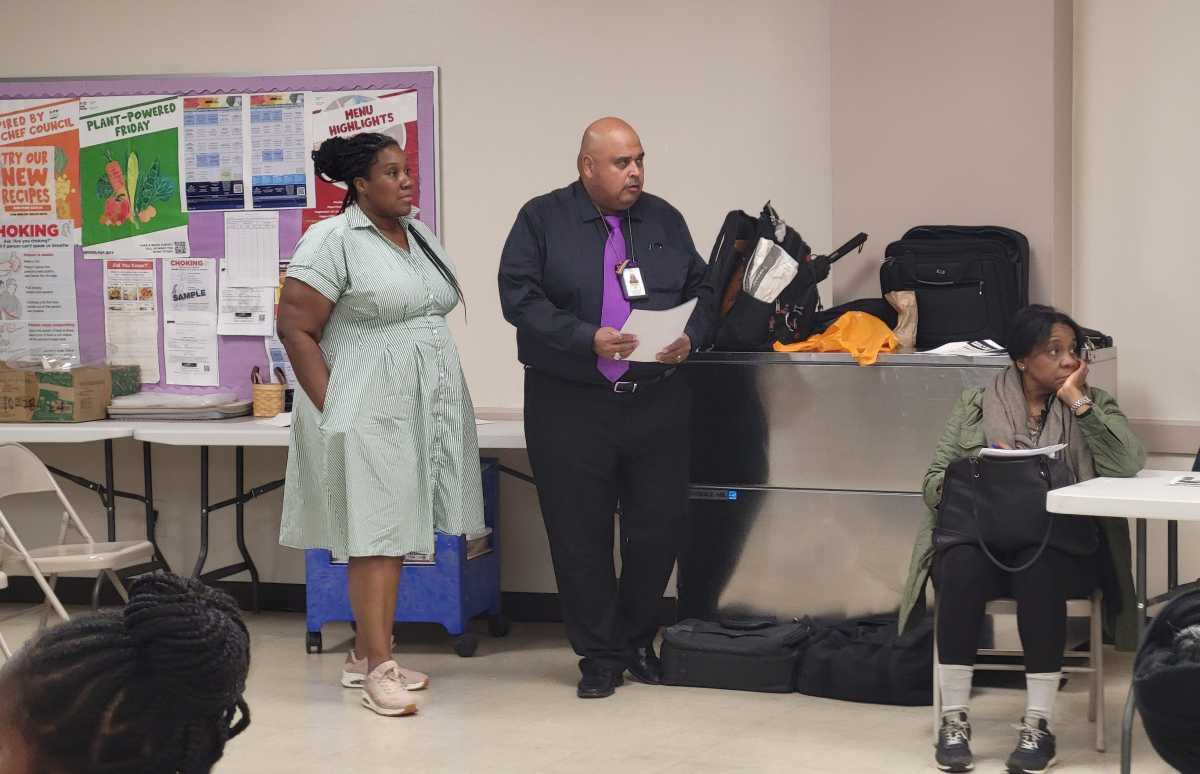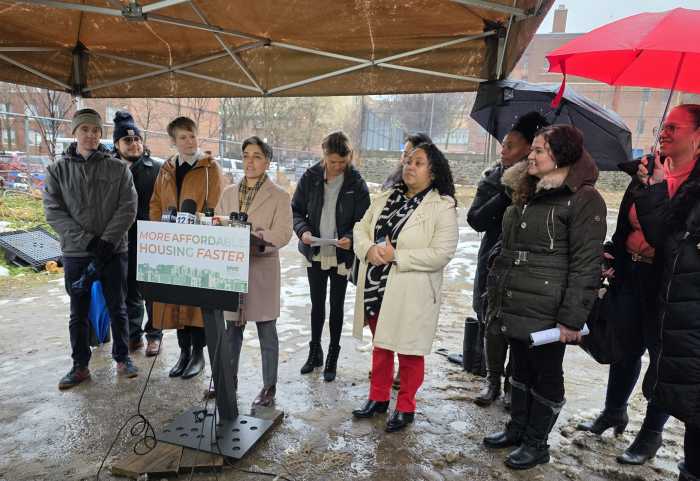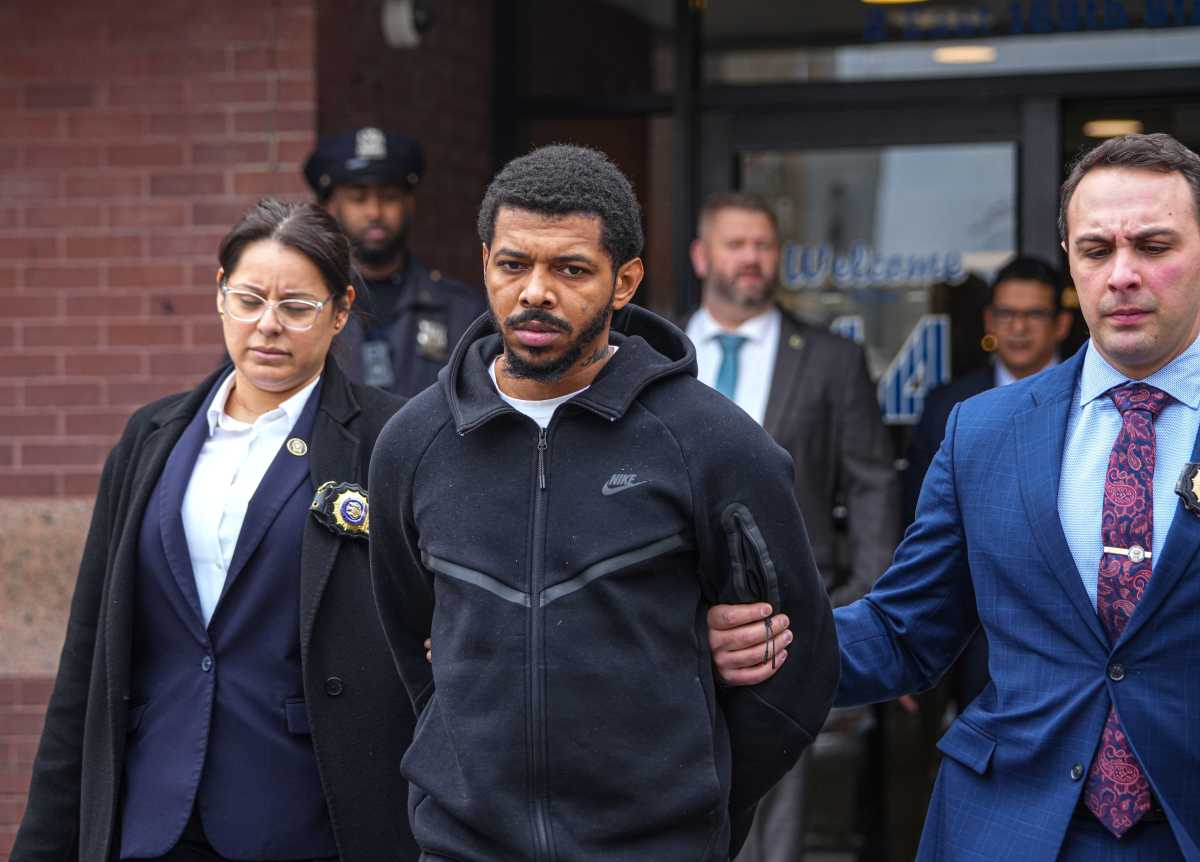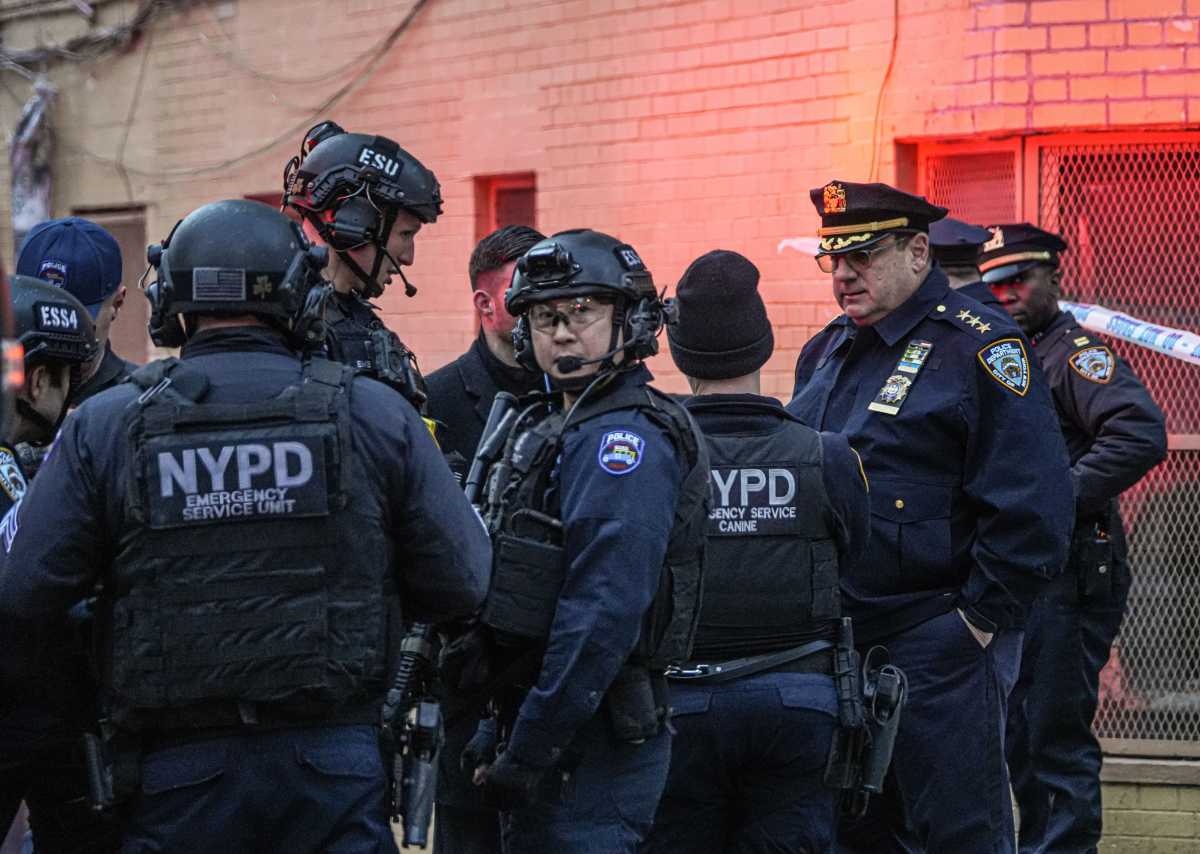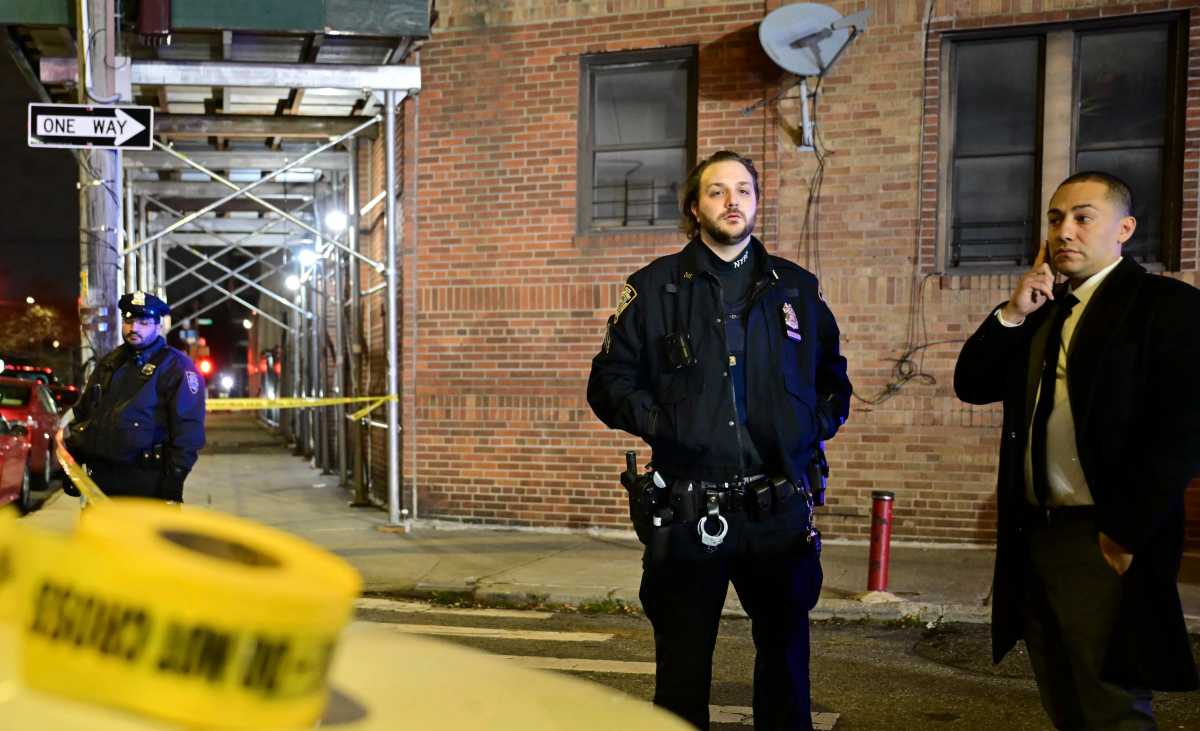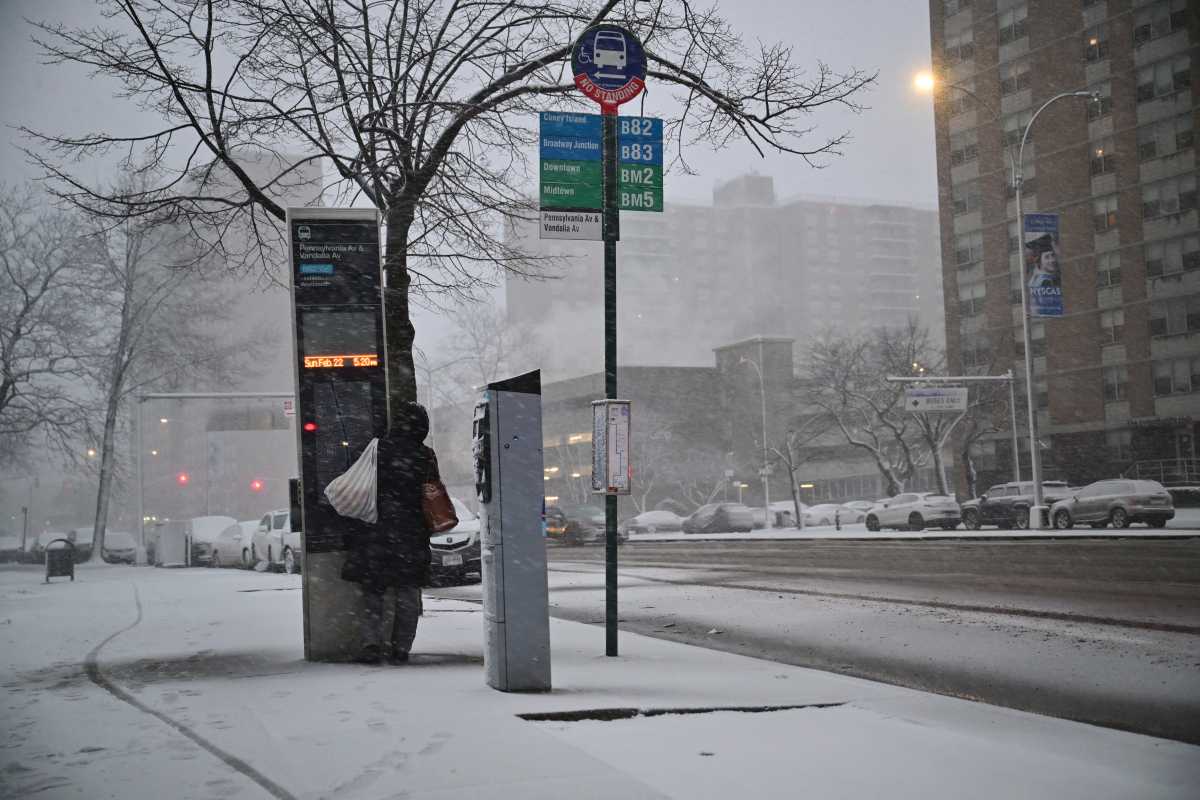The Bronx Community Board 3, which serves the neighborhoods of Bathgate, Claremont, Crotona Park East, Melrose, Morrisania and Woodstock, voted Oct. 14 to remove one of its members under accusations of misconduct which she disputes.
At the meeting, members voted 23 to 8, with four abstentions, to remove Jacquelyn Moore-Hill for “repeated disruptions during public meetings, aggressive behavior towards board leadership, use of profane and inappropriate language in a professional setting, and ongoing efforts to bypass established protocols to pursue personal interests have created a pattern of conduct unbecoming of a member of this board,” Etta Ritter, the district manager wrote in an Aug. 25 letter that Moore-Hill said she never received.
The vote largely stemmed from a dispute between Ritter and Moore-Hill, who joined the board in Aug. 2024, after the June board meeting. It’s unclear how long Ritter has served on the board, as district manager or a regular member, and she did not respond to inquiries regarding the removal.
Just days before the June meeting, Moore-Hill, who is Black, believed her 10-year-old daughter had experienced racial discrimination at a local tennis center. She pressed for the issue to be taken up by the board, but Ritter declined, classifying it as a private matter.
Despite the disagreement, Ritter posted photos of Moore-Hill’s daughter playing tennis on the board’s Instagram page and announced during the June meeting that her child was participating in a tournament at the tennis center where the alleged discrimination took place.
In Moore-Hill’s view, the board was intent on showing the tennis center in a positive light while avoiding a difficult issue that may affect other people of color in the community.
In addition, she was upset that her daughter was mentioned in the meeting and photos posted on Instagram without permission — where they remain online today. Even on her own Instagram account, Moore-Hill said she has only one photo of her daughter, taken at age three.
She confronted Ritter after the June meeting, and that conversation, which no one else fully overheard and was off the public record, largely led to her removal.
Moore-Hill, a 44-year-old lifelong Bronx resident, spoke with the Bronx Times the night she was voted off the board.
She said she and Ritter had a “hard conversation” back in June but denied any aggressiveness or disrespectful language. “We both looked like we were arguing, which we were,” she said. But Ritter saw it differently. In a letter to the borough president’s office and members of the board’s executive committee, she said Moore-Hill “approached [her] aggressively” and used a “confrontational tone.”
“I asked her on multiple occasions to calm down so we could have a respectful dialogue, but she did not comply,” Ritter said in the letter, which accused Moore-Hill of saying, “I don’t f—ing play about my daughter.” That argument was not Ritter’s only complaint. In the letter, she said Moore-Hill generally displayed “disruptive conduct” and undermined the board’s authority by “attempting to bypass protocol and challenge decision-making.”
Ritter even hinted at a potential physical threat, saying, “I do not feel comfortable or safe continuing to engage with her in a professional capacity, and I am deeply concerned that this behavior will escalate if left unaddressed.” Moore-Hill said she has never been aggressive or violent. In her view, the essence of the issue was board leaders’ unwillingness to hear opposing views, especially from newer members.
She said she saw it as her responsibility to question board leadership at times.
Moore-Hill said she sometimes felt Ritter and Chairperson Joetta Brown presented incorrect information about issues before the board or tried to rush through votes. She wanted to avoid being a “rubber stamp” for leadership, and in some instances, Moore-Hill consulted the borough president’s office for guidance.
But what Moore-Hill saw as responsible participation, Ritter and Brown viewed as undermining. Back in February, Moore-Hill was called to a Zoom meeting with the chairperson and district manager, a conversation she felt was meant to silence her.
“The purpose of this meeting is to discuss the importance of board member participation as a collective effort and to ensure that all matters are approached with proper protocol and procedures,” Ritter said in an email requesting the meeting. “It is essential that we work together in a manner that respects the board’s structure and fosters collaboration among all members.”
Moore-Hill said the conversation was not accompanied by formal written warning and that she didn’t view it as disciplinary action.
“It was like I was taken to the principal’s office for asking too many questions,” she said. “I wasn’t just going to vote how they wanted me to vote,” she said. “If I am the problem, then it wasn’t the right environment for me.”
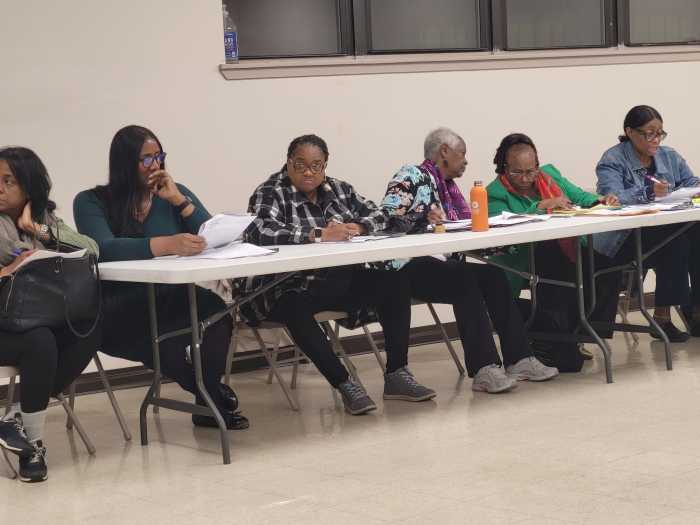
Calling for community board reform
While the city’s 59 community boards see their fair share of drama, many are plagued by poor attendance and low participation. The boards require a significant time commitment and have only advisory voting power on important issues such as land use and private development. And while district managers are city-paid employees, nearly all other members, including chairpersons, are volunteers.
Even so, some members remain dedicated for years. According to the borough president’s office, Community Board 3 has seven members who have served between 10 and 19 years, while 11 members have served only one full year.
The ongoing call for community board reforms has renewed momentum with bills currently before City Council.
One bill would impose four-year term limits on district managers, with possible re-appointment thereafter, and allow borough presidents to remove district managers at will. As of now, board members are subject to eight-year term limits, but district managers have no such restrictions.
Queens Council Member Nantasha Williams, who sponsored the bill, testified at a June hearing that district managers should be subject to “necessary guardrails.”
“[R]ight now, there’s no consistent structure for how district managers are hired, evaluated or supported,” Williams said. “That lack of clarity creates instability, making it harder to retain good staff, weakening internal operations and leaving too much room for politics to interfere with process.”
For a member to be voted off the board — or removed by the borough president — is unusual but not unprecedented. Vanessa Gibson removed a Community Board 11 member in December 2023 after he allegedly gave the middle finger to a resident who spoke during a virtual meeting.
Then, in spring 2024, CB11 voted to remove its chair and strip the vice chair of his leadership role. In the end, Gibson removed six members, including the former vice chair, and said the board was riddled with “chaos” and “dysfunction.”
Bronx CB3 has seen little drama and public attention. But even among the rare cases of member removal by vote, Moore-Hill’s situation was unusual because the alleged misconduct occurred after, not during, an official meeting.
Moore-Hill said at least two other members overheard the conversation between her and Ritter and did not provide any evidence against her. However, two board members submitted letters expressing concern about Moore-Hill’s behavior leading up to the removal vote. These materials were given to board members, along with letters from Ritter and Brown calling for Moore-Hill’s removal, before the Oct. 14 meeting.
In one letter, Anddy Perdomo said she “could not hear all that was said” between Moore-Hill and Ritter but that Moore-Hill’s “demeanor was emotionally charged.”
In another, board secretary Keziah Sullivan-Norman said she was not present for the June meeting at all and heard about the dispute secondhand. Still, she expressed concern about a “pattern of disruptive and confrontational behavior” from Moore-Hill.
Speaking before the vote, Moore-Hill said the allegations against her were unsubstantiated, based mainly on hearsay. She said she served the year with no unexcused absences, participated on two committees when only one was required, and worked on several important community issues.
Moore-Hill also she never received prior notice of the vote on her removal. Though the board had receipts to show a letter was sent via certified mail, Moore-Hill said it never reached her, and she never signed for it, thereby denying her opportunity to respond in writing within five days as the by-laws require.
The threat of removal felt like “the Scarlet Letter A” attached to her name and reputation, she said in the meeting. “There is a certain personality that goes along with this leadership that is not open to ideas.”

Not-so-private vote
Before the vote was held, board member Paul Navarro motioned for it to be conducted by private ballot, rather than by roll call, and the motion passed. But as ballots were distributed around 7:50 p.m., commotion ensued as members realized their vote was not fully anonymous. The ballots had their names printed on them and required their signatures.
Kenny Agosto with the borough president’s office, which oversees the community boards, said a fully anonymous vote was not possible under the city’s Open Meetings requirements.
Before the vote, Agosto said the borough president was “taking a neutral stand right now.” The office did not respond to request for comment for this story. “You are publicly appointed members. Like you’re in a jury, you have to deliberate and vote,” Agosto said.
He supervised and tallied the vote, and Moore-Hill and a staffer of Rep. Ritchie Torres, who was at meeting to provide a monthly office update, witnessed the counting.
As Agosto announced the vote of 23 to 8 (plus 4 absentions) to remove Moore-Hill, someone began applauding but was quickly cut off.
“These are difficult circumstances,” Agosto said. “We have to be decent. We have to be responsible.”
‘You begin to think [the board] belongs to you’
On the Moore-Hill vote, board member Beverly Emers called the accusations “BS.” She said while no one should feel unsafe doing their job, the district manager did not make a strong case. Instead, Emers described the accusations against Moore-Hill as, “‘She’s messing with Ms. Ritter’ — that type of energy.”
Emers said she believes board members, especially those who have served a long time, can become “protective” of their positions rather than welcoming new voices. “You begin to think it belongs to you.”
Emers said some CB3 members likely feared retaliation for voting to keep Moore-Hill on the board — which was why many wanted a truly private ballot.
The night of the vote, Emers said she was in tears. “That was very hard. I was upset after.” She said it was difficult to realize that voices like her own — which Emers admitted is confrontational and aggressive — may not be welcome on the board. “Shoot, they could’ve voted me out, if that’s the case.”
As for Moore-Hill, “You saw how she would not let up. That can be problematic for some people,” said Emers.
Though Moore-Hill still disputes the accusations and process that led to her removal, she said she will not try to appeal the vote or take further action.
Moore-Hill said her situation shows that board members, chairpersons and district managers need better training. At the time of the vote, CB3 had not even held its own orientation, which was on Oct. 18, even though new members were sworn in Aug. 20.
Moore-Hill said she was “looking at it with very clear eyes” in an Oct. 20 call with the Bronx Times. She said she realized that because members are not always armed with accurate information, boards are set up to fail.
In the end, her attempts to seek clarity as a newer member were not welcomed, she said. “If you’re intelligent and ask intelligent questions, you’re the problem,” said Moore-Hill.
This story was updated Oct. 22 at 4:50 p.m. to clarify that the abstentions did not count ‘no’ votes but were separately categorized.
Reach Emily Swanson at eswanson@schnepsmedia.com or (646) 717-0015. For more coverage, subscribe to our newsletter and follow us on Twitter, Facebook and Instagram!

